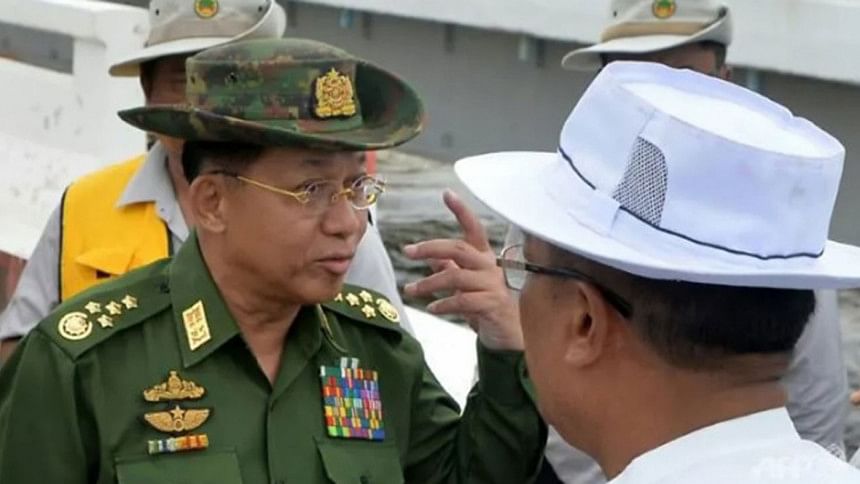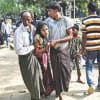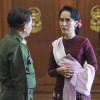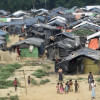Senators ask US to sanction Myanmar army chief

Senators called Wednesday for the United States to slap sanctions on Myanmar's army chief, saying more needed to be done to bring accountability over the campaign against the Rohingya.
In a letter to Secretary of State Mike Pompeo and Treasury Secretary Steven Mnuchin, the four senators said Myanmar has shown "no credible signs of progress" despite widespread international condemnation of the killings and sexual violence against members of the mostly Muslim minority.
Senators including Dick Durbin, the number-two Democrat, said that sanctions against Myanmar's army chief, Senior General Min Aung Hlaing, as well as other top officers would demonstrate "US intolerance for behavior that contravenes fundamental human rights."
"The Trump administration has taken no action against these senior officials even though sanctions designations would send a strong message that the United States supports accountability for those perpetrating well-documented human rights abuses against the Rohingya and other ethnic minorities," wrote the group that also included Republican Senator Todd Young of Indiana, which has become a hub for refugees from Myanmar.
The Treasury Department in August imposed sanctions on four commanders accused of orchestrating massacres, but the senators said the move was insufficient.
They urged sanctions against Min Aung Hlaing under the Magnitsky Act, a US law named after a Russian accountant who died in prison that lays out the seizure of assets and a US travel ban for foreign officials who violate human rights.
Around 740,000 Rohingya fled into neighboring Bangladesh in 2017 in a military campaign that the UN called ethnic cleansing.
In a rare foreign media interview last month, Min Aung Hlaing told Japan's Asahi Shimbun that there was "no certain proof" the army had persecuted the Rohingya.
The military shares power with a civilian government led by Aung San Suu Kyi, a former heroine in the West when she was under house arrest who has been widely condemned for not speaking up on behalf of the Rohingya.

 For all latest news, follow The Daily Star's Google News channel.
For all latest news, follow The Daily Star's Google News channel. 








Comments